
Joy Mangano is the humble-roots woman who became an industry of household inventions (mainly, the Miracle Mop, although she holds over 100 patents)—not an obvious choice for a biopic. Perhaps only director David O. Russell could see the potential in it, boosted by his fascination with Jennifer Lawrence , who plays Mangano.
“Joy” demands that the audience become emotionally invested in a mop. It’s ridiculous. “Joy” doesn’t work entirely, and the structure set up so clearly in the opening sequence is dropped early on for no apparent reason, but I’ll be damned if I didn’t get carried away at the story of a mop sweeping the nation. It’s a lunatic “Mildred Pierce,” without the murder.
“Joy” starts as a fable about a little girl who liked to make things, narrated in an epic tone by her loving grandmother Mimi ( Diane Ladd ). The narration is so strong at the start, that it’s noticeable when it disappears. It feels sloppy as opposed to deliberate. Diane Ladd, set up as the crucial “witness” to her granddaughter’s hidden gifts, vanishes for the majority of the film. It’s not clear why. When Mimi’s narration returns, you had forgotten that it was used as a device in the first place. It’s an interruption rather than a continuation. “Joy” makes its way forward through stylistic stops and starts. It can’t settle down.
Joy doesn’t see herself the way her grandmother sees her: she derailed her life early by marrying a Tom Jones wannabe ( Édgar Ramírez , in a hilarious and surprisingly touching performance), having two kids with him, getting divorced but then remaining friends. Now she lives in a rickety house with her entire extended family, including her ex-husband who hangs out in the basement in a tuxedo singing 1970s power-ballads into a microphone. Her mother ( Virginia Madsen ) lies in her bed all day watching soap operas. (Real soap opera stars, Susan Lucci, Laura Wright, Donna Mills , appear in re-creations, an entertaining device that is not developed, similar to the voiceover). Joy’s father (played by Robert De Niro ) shows up at the door one day, thrown out of the house by his new wife, needing a place to stay. Meanwhile, the grandmother peeks around corners whispering inspirational thoughts at her harried granddaughter.
One day, Joy draws a picture with her daughter’s crayons of a revolutionary mop. She hits up her dad’s new rich girlfriend Trudy (Isabella Rosselini) for the cash to start up a small business. But, Joy has no luck selling her new invention. Enter Bradley Cooper as Neil Walker, a slick, soft-talking executive producer at QVC. Neil looks upon Joy as an amateur-hour open-mike-night kind of inventor; he decides to give her a shot on television. To increase her inventory, Joy hastily sets up an assembly line in her father’s body shop. Along the way, she deals with sketchy manufacturers, Trudy’s increasingly angry-mogul demands about her investment, and the very real urgency that her house is falling apart and she can’t afford a plumber.
“Joy” features chaotic family scenes with the let-the-camera-find-the-action quality familiar from Russell’s other family comedies like “The Silver Linings Playbook,” “Flirting with Disaster,” “ I Heart Huckabees ” and sections of “ The Fighter ,” with the scowling rogues gallery of practically identical sisters like something out of a fairy-tale. They make for the funniest scenes in “Joy”—De Niro smashing knick-knacks, Ramirez throwing in comments from off-screen, Madsen wailing like a martyr from her day-bed, and Ladd whispering New Age-y encouragement. These scenes have real energy. One shot is so funny (the camera moving down the basement stairs into the ex-husband’s lair) that it’s a reminder of what inventive camerawork can achieve.
Russell has directed Jennifer Lawrence three times now (“ Silver Linings Playbook ,” “ American Hustle ,” and now “Joy”), and once to an Oscar (her first, for “Silver Linings Playbook”). The “Hunger Games” franchise is so enormous that it’s sometimes easy to forget “Winter’s Bone,” which brought Lawrence to a wide audience (as well as her first Oscar nod). In “Winter’s Bone” she brought a naturalism and a gravitas far beyond her years. Her public persona is entertaining in an old-fashioned way: she would have killed on Johnny Carson, in the way Burt Reynolds used to kill in his appearances. Late-night talk shows and press conferences feature so many obedient performers plugging their project that Lawrence’s appearances seem even more anarchic than they already are. In this way, she’s reminiscent of Carole Lombard , a glittering natural comedienne onscreen, and a trash-talking sailor off-screen. David O. Russell taps into that,. Perhaps, even most importantly, he saw that potential in Lawrence in the first place.
Being obsessed with your lead actress is sometimes seen as a director playing Svengali or Henry Higgins, or evidence that the director has lost his “objectivity” (as though objectivity is the mark of a good director.) But so much richness has come out of that kind of obsession. Josef von Sternberg was so obsessed with Marlene Dietrich that he introduced her to the world. Howard Hawks was so invested in his imaginary ideal woman (insolent, feminine but not soft) that he plucked Lauren Bacall out of obscurity and gave her the lead role opposite Humphrey Bogart in “To Have and Have Not,” one of the most extraordinary screen debuts in cinema history. Woody Allen ’s partnership with Diane Keaton cemented her position as an awkward leading lady. Christian Petzold ’s films with Nina Hoss have been one of the most important contemporary collaborations, highlighting what Nina Hoss can do as an actress (which is everything). David O. Russell’s obsession with Lawrence is similar. He sees her in a way other directors hadn’t. He got how funny she was. He saw her Classic Leading Lady potential, even though she has been too young for almost all of the parts he has cast her in (true of “Joy” as well, where she has to age 20 years).
When Lawrence, as Joy, stands on the brightly lit QVC stage, frozen in fear at the cameras, and then gathers herself together to rant about her Miracle Mop, the conviction in the monologue is so strong that an organic flush actually rises in Lawrence’s cheeks. Joy’s mop, and its potential, make her emotional, and that emotion translates because Lawrence herself believes in it so strongly. There are similar sequences: Joy letting off steam at a makeshift shooting range, and a standoff scene in a Texas hotel. The final moment shows Lawrence walking towards the camera in slo-mo, her chopped hair bouncing in her face, putting on her hip sunglasses. The moment goes on forever, but Russell can’t get enough of it. As Pauline Kael said of Barbra Streisand in her review of “ Funny Girl ”:
“ In life, fantastically gifted people, people who are driven, can be too much to handle; they can be a pain. In plays, in opera, they’re divine, and on the screen, where they can be seen in their perfection, and where we’re even safer from them, they’re more divine. ”
“Joy” is pretty ridiculous, and there are long sections of it that don’t work. It’s obviously a star vehicle for Lawrence, but if anyone deserves a vehicle, she does.


Sheila O'Malley
Sheila O’Malley received a BFA in Theatre from the University of Rhode Island and a Master’s in Acting from the Actors Studio MFA Program. Read her answers to our Movie Love Questionnaire here .

- Isabella Rossellini as Trudy
- Edgar Ramírez as Tony Miranne
- Jennifer Lawrence as Joy Mangano
- Virginia Madsen as Carrie
- Dascha Polanco as Jackie
- Bradley Cooper as Neil Walker
- Diane Ladd as Mimi
- Elisabeth Röhm as Peggy
- Robert De Niro as Rudy
- Alan Baumgarten
- Christopher Tellefsen
- Jay Cassidy
- Annie Mumolo
- David O. Russell
Production Design
- Judy Becker
Director of Photography
- Linus Sandgren
Leave a comment
Now playing.

Mufasa: The Lion King
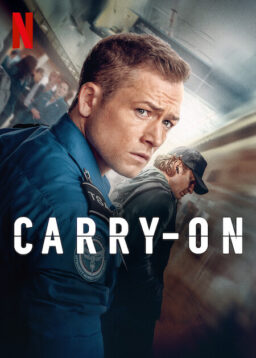
September 5
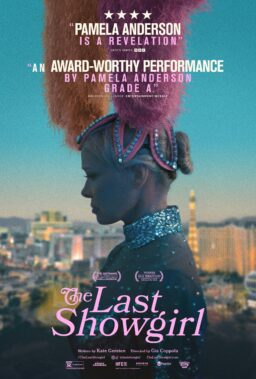
The Last Showgirl
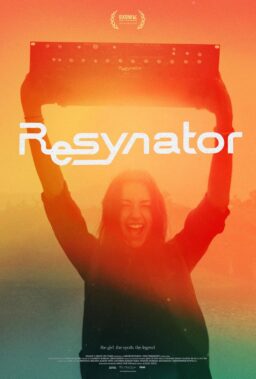
The Lord of the Rings: The War of the Rohirrim

Dirty Angels
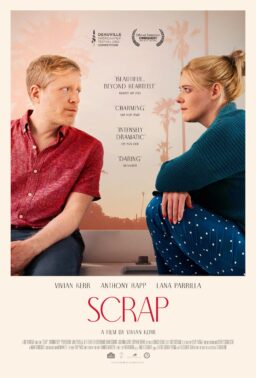
Theatre of Thought
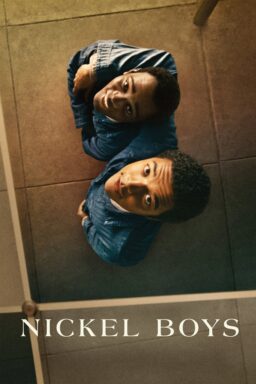
Nickel Boys

Kraven the Hunter
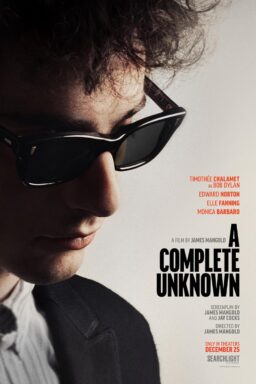
A Complete Unknown
Latest articles.

The 10 Best Horror Films of 2024

The 25 Best TV Series of 2024
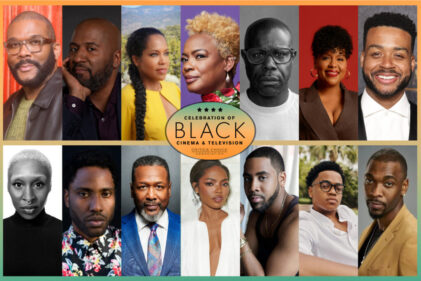
My Night at the Critics Choice Celebration of Black Cinema and Television

“Dragon Age: The Veilguard” Builds Out Dense Mythology with Interesting Characters
The best movie reviews, in your inbox.
- Issue Archive
- Stay Connected
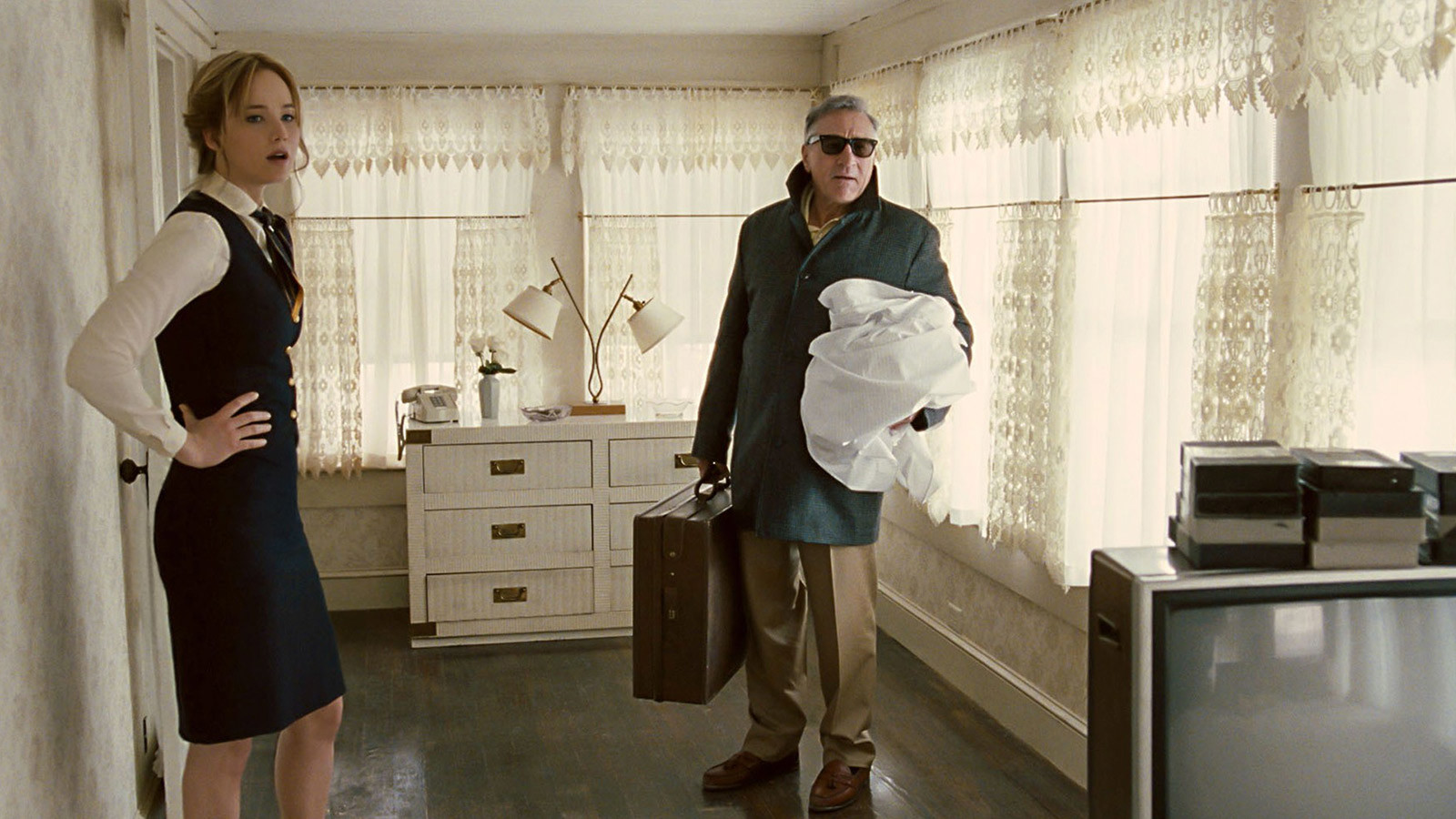
Short Takes: Joy
By Nicolas Rapold in the January-February 2016 Issue
David O. Russell’s latest film opens with a small-screen view of an impossibly stilted soap opera, its actors planted like trees on their marks in front of the studio cameras. It’s the favored show of the nearly bedridden mother of Joy Mangano, the future miracle-mop-inventor who still lives with her parasitic Long Island family, a bastion against dysfunction (but also a part of it). It’s not a bad guiding metaphor—that Joy herself is stuck in the recurring deflating, chauvinist narrative of her life that permits her no personal expression or advancement.
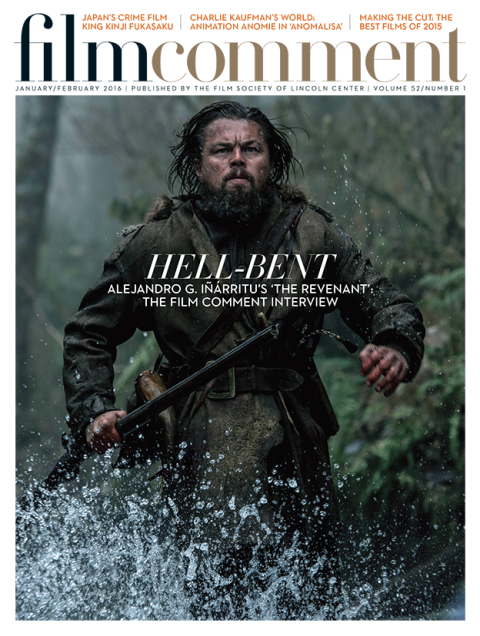
That’s about as intriguing as Joy the movie gets before turning into a film-length advertisement for the self-empowerment of its working-class protagonist. All the usual fun Russell crossfire is here, however, with people speaking their kooky minds and getting in each other’s business, like Robert De Niro as Joy’s estranged father who runs an auto-body shop, or a bewigged Isabella Rossellini as his newfound wealthy-widow love. But as soon as Joy gets that look in her eyes and pursues her invention, it’s the gumption show.
Fortunately, Lawrence could mop the floor and it’d be interesting (which, in fact, she does). Her energy and genuineness, and ability to surprise by modulating happy and sad emotions despite her outward glow, are all impressive. But it’s still not enough to save the film, which bumps along to an abrupt, broken-backed ending.
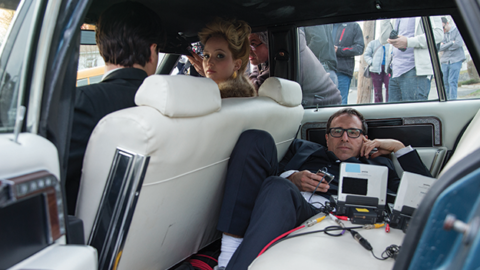
Interview: David O. Russell
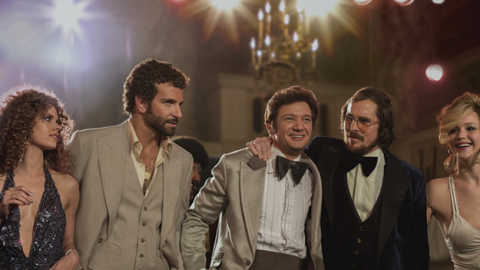
Review: American Hustle
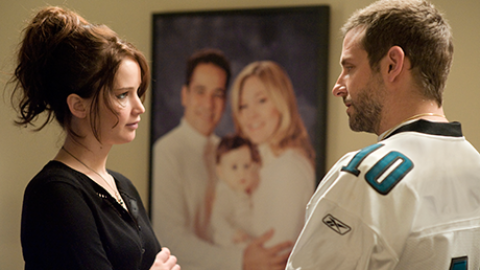
Review: Silver Linings Playbook
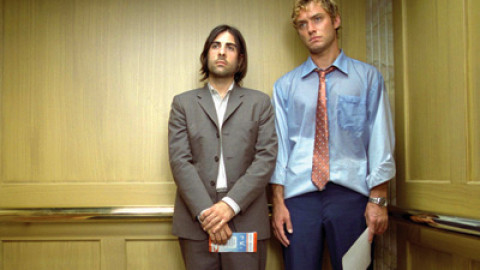
Hearts and Minds: I ♥ Huckabees
The Definitive Voice of Entertainment News
Subscribe for full access to The Hollywood Reporter
site categories
‘joy’: film review.
David O. Russell's decades-spanning comedy stars Jennifer Lawrence as Joy Mangano, who invented and personally marketed the Miracle Mop.
By Todd McCarthy
Todd McCarthy
- Share on Facebook
- Share to Flipboard
- Send an Email
- Show additional share options
- Share on LinkedIn
- Share on Pinterest
- Share on Reddit
- Share on Tumblr
- Share on Whats App
- Print the Article
- Post a Comment
For sheer wackiness and functional dysfunctionalism , the family in the venerable farce You Can’t Take It With You is given a good run for its money by the clan at the center of Joy. David O. Russell ‘s third film in a row to have the good fortune of starring Jennifer Lawrence is nominally a story of perseverance and tenacity over ridiculous odds, but spends much of its time examining the paralysis caused by the myriad vicissitudes and irrationalities of its madly neurotic, self-involved characters. That the film itself is nearly as chaotic as the clan it examines can either be regarded as an admirable artistic correlative or a crippling defect, but the splendidly dexterous cast ensures that this goofy success story, which could just easily be titled American Hustle 2, keeps firing on all cylinders in the manner of the writer-director’s previous few outings.
Related Stories
New 'meet the parents' in the works with robert de niro, ben stiller returning for universal, michael mann talks 'heat 2' script: "it has to be finished really soon".
When a movie runs through four credited editors, it’s usually a sign that something’s amiss, be it in pacing, narrative coherence, tonal control and/or balance among diverse elements. All of these issues apply here, but the combined energy, determination and talent of Russell and his actors blast through the underbrush of unlikely plotting, far-fetched coincidence and abrupt personality about-faces to keep the audience on the high road of willing disbelief that all this could be happening (it is based on a true story).
Release date: Dec 25, 2015
Read more Roundtable: Jennifer Lawrence, Cate Blanchett and Six More Top Actresses
The spirit of the great writer-director Preston Sturges , and his both jaundiced and appreciative view of the extreme fluidity of American success and failure, seems to hover over Russell’s shoulder as he lays out the roller-coaster life of Joy Mangano (Lawrence) across four tumultuous decades. The big turning point in Joy’s life, and her major claim to fame, is her invention of the self-wringing Miracle Mop, which she launched and personally hawked on the QVC telesales network in the 1990s . Many, if not most filmmakers ( Sturges included) would have had great satiric fun with this, but for Russell her achievement is as legitimate and challenging as any other in life — including, one might propose, making a film; the same degree of tenacity and belief in oneself is involved.
The outer trappings of Joy’s life could easily have been the stuff of pure farce, but Russell, more maturely and ambitiously, pushes his enterprise in the direction of human comedy. Life, as it’s always portrayed in his films, is messy and complicated, and rarely more so than with Joy. A hard-driving mother of two, she resolutely presides over a family that includes two men, her father Rudy (Robert De Niro ), a hard-headed old-timer who runs a garage, and ex-husband Tony ( Edgar Ramirez ), a Venezuelan would-be Tom Jones-style singer, both of whom now live in the basement of a modest home that also includes grandma Mimi (Diane Ladd), in whose eyes Joy can do no wrong, mother Terry (Virginia Madsen ), a princess who has retreated into a non-stop emotional addiction to daytime television soap operas, and sister Peggy (Elisabeth Rohm), whose aggressive negativism casts a pall on all of Joy’s ideas.
Joining the mix before too long is an Italian woman of means, Trudi (Isabella Rossellini ), who takes up with lifelong romantic Rudy and provides a welcome addition of grace and propriety.
As the pic flashes back and jumps around in time, Joy is established as a doer and creator who fills any vacuum created by others’ inaction, a necessary trait if anything is to get done in this otherwise short-falling family. “I don’t need a prince,” she insists at a young age and, indeed, she gets along with Tony famously once she gives up expecting anything of him as a husband. At a certain point, however, after one too many setbacks and disappointments, Joy momentarily collapses in apparent defeat. “What happened to us?” she pleads. “I feel like our dreams are getting farther and farther away.”
Read more Will ‘Joy’ Return Jennifer Lawrence to the Best Actress Circle?
Only from this low point can Russell start to burrow into his favorite theme and begin to construct another of his tales of self-reinvention. Once Joy fashions her homemade mop, a simple device with the key component of a 300-foot cotton loop that’s easily wrung out without a watery mess, she obsessively but rationally pursues her goal of marketing it. Kicking her men out of the basement, she makes her prototype, asks Trudi to invest (a very fine scene), hires a small army of Latinas to assemble the product and begins her sales efforts by demonstrating them in a Kmart parking lot, which doesn’t last long.
More productively, she worms her way in to see QVC executive Neil Walker ( Bradley Cooper ), who amusingly tells of having been hired by Barry Diller to build the business, provides a nifty inside view of what the network’s protocols are and ends by unexpectedly asking Joy the question she couldn’t have even dreamed of hearing: “Can you make 50,000 of these mops by next week?”
Although this may seem like the end of the rainbow to Joy, it’s actually the dark side of the moon, as myriad new obstacles are shoved in her path to success and self-vindication. The developments in the second half begin to illuminate what ultimately make the film seem somewhat arch and artificial, which is that things keep bouncing from the highest highs to the lowest lows with little in between. And it happens across the board: Both of Joy’s parents flip from utter misanthropy and negativity to the vicinity of bliss on the basis of new and highly unlikely romantic entanglements, Neil shuttles between being hero and villain, and a mystery man toward the end similarly exists only in extremes. Life may be a roller-coaster, but the repeated sudden changes in fortune that repeatedly turn lives upside down in both directions come to feel increasingly artificial in the telling.
As is always the case with Russell’s films, the actors are all wired, completely on their games. Once again, Lawrence rises to the occasion and takes charge, bringing to life a character who fights the fight for several decades and comes out on top. She reliably brings grit and conviction to her characterization, but what’s missing is the illumination of an inner emotional life, even if it were just the acknowledgment that Joy has put a hold on romantic fulfillment. Both of her parents have been accorded this dimension, credibly and even touchingly in the case of Rudy, and very amusingly, if not entirely convincingly, with Terry. If Joy has ruled out amorous prospects, it would be good to know more about her attitude.
Read More Jennifer Lawrence on Her First Sex Scene: “That Was The Most Vulnerable I’ve Ever Been”
De Niro moves beyond caricature to provide a full-bodied portrait of a skeptical man whose one great strength is an inextinguishable romanticism. He’s wonderfully matched by Rossellini , who has seldom been this warm, appealing and self-possessed onscreen. Both Madsen and Ladd are a hoot as distinctively eccentric women, and Rohm is unsettling as a reliable purveyor of negativism. Ramirez engagingly reveals his limited character’s sweet heart and soul, while Cooper smoothly handles his quicksilver corporate showbiz character.
West Dylan Thordson and David Campbell’s punchy score is complemented by some sharply chosen musical samplings, which only partially papers over the pic’s many jumpy and abrupt transitions as it lurches through the years and the characters’ wildly changing life circumstances.
Producton : Fox 2000 Pictures, Annapurna Pictures, Davis Entertainment Company, 10 by 10 Entertainment Distributor: Fox 2000 Cast: Jennifer Lawrence, Robert De Niro , Edgar Ramirez, Diane Ladd, Virginia Madsen , Isabella Rossellini , Bradley Cooper, Dascha Polanco , Elisabeth Rohm, Susan Lucci , Laura Wright, Maurice Benard , Donna Mills, Jimmy Jean-Louis Director: David O. Russell Screenwriter: David O. Russell, story by Annie Mumolo , David O. Russell Producers: John Davis, Ken Mok , Megan Ellison, Jonathan Gordon, David O. Russell Executive producers: Matthew Budman , John Fox, Mary McLaglen , Joy Mangano , George Parra , Annie Mumolo , Ethan Smith Director of photography: Linus Sandgren Production designer: Judy Becker Costume designer: Michael Wilkinson Editors: Jay Cassidy, Alan Baumgarten , Christopher Tellefsen , Tom Cross Music: West Dylan Thordson , David Campbell Casting: Lindsay Graham, Mary Vernieu
Rated PG-13, 124 minutes
THR Newsletters
Sign up for THR news straight to your inbox every day
More from The Hollywood Reporter
James gunn reveals how ‘top gun: maverick’ influenced ‘superman’, ariana grande open to performing at the oscars with cynthia erivo: “say the word and we’ll be there”, marvel veteran, ‘black panther’ producer nate moore leaving studio, oscars: international shortlist snubs and surprises, oscar shortlists analysis: what it means that ‘emilia pérez’ nabbed a field-leading six spots but ‘anora’ was mia, ‘the brutalist’ cinematographer lol crawley on shooting 3.5 hour film on 35 mm: “what you see is what we shot”.
By Peter Travers
Peter Travers
In telling the story of the woman who invented the Miracle Mop, director-writer David O. Russell , who co-wrote the story with Annie Mumolo, gets off to a wobbly start, builds to a wonderfully satirical middle and ends with a whimper. So, should you see Joy ? I’d give it a shot. The invigorating talent of the man behind The Fighter , Silver Linings Playbook and American Hustle still shines, even in this uneven muddle.
Trending Stories
What the ‘i slept with 100 men in one day’ doc gets right about sex work, ‘it’s frightening’: abc news staffers incensed by ‘capitulation’ to trump, dirty bombs, aliens, holograms, and orbs: drone mania unleashes conspiracy theories, dems choose 74-year-old gerry connolly over aoc for key committee role.
And did I mention that Jennifer Lawrence is the star? The 25-year-old supernova again proves she can do anything, moving from comic to tragic without missing a beat. Her job isn’t easy. Russell has fictionalized the life of Joy Mangano, the Long Island mother whose design for the self-wringing mop made her millions. Russell sees her as Everywoman, a paragon who spends four decades fighting her way out of the male shadow. Joy’s dad (a splendidly obtuse Robert De Niro ) doesn’t believe in her, though he lives in her basement with her ex-husband (Edgar Ramirez) while her mom (Virginia Madsen) stays in the upstairs bedroom glued to TV soaps that Russell parodies to scant effect. This despite the presence of such daytime luminaries as Susan Lucci and Maurice Benard. The film is narrated by Joy’s proud grandmother (Diane Ladd), which only further gilds the lily of Joy’s unceasing virtue.
The film catches fire when Joy borrows seed money from dad’s stingy new lady (the ever-marvelous Isabella Rossellini), which leads to a QVC exec (a fine, focused Bradley Cooper ) putting her on the air to sell her mop and herself. It’s brings out the best in Russell and Lawrence to show Joy fighting to retain her humor and humanity in a world of crass commercialism. But there’s no teeth in Russell’s bite this time. His admiration for Joy has blurred his vision. And he lets the climactic scenes of empire building drown the film in a sea of clichés. Sadly, Russell’s movie is not a joy forever. Happily, Lawrence is.
Tom Cruise Awarded Top U.S. Navy Civilian Honor for Onscreen Contributions
- By Charisma Madarang
There’s No Big Mystery in ‘Aaron Rodgers: Enigma’
- Quarterback Blitz
- By Ky Henderson
Cate Blanchett, Michael Fassbender Are Star-Crossed Spies in ‘Black Bag’ Trailer
- Kill for Love
- By Kalia Richardson
Jackie Chan, Ralph Macchio Train New Prodigy in ‘Karate Kid: Legends’ Trailer
- Wax On, Wax Off

‘Mufasa,’ or: How the Original Lion King Got His Groove On
- Movie Review
- By David Fear
Most Popular
Elton john called the legalization of marijuana in america and canada 'one of the greatest mistakes of all time', 'wicked: for good': here's what we know about part 2, prince louis breaks another long-standing royal tradition at recent outing, papoose says he's requested divorce "numerous times," remy ma exposes his "gf" claressa shields, you might also like, pedro almodóvar, julianne moore, tilda swinton receive individual nominations as ‘the room next door’ snubbed in spanish academy goya best picture race, drew starkey reflects on his singular focus in ‘queer,’ embracing solitude, and navigating stardom, the best yoga mats for any practice, according to instructors, oscar shortlists reveal strengths and weaknesses as netflix dominates, lawyers for house v. ncaa plaintiffs seek almost half a billion dollars.
Rolling Stone is a part of Penske Media Corporation. © 2024 Rolling Stone, LLC. All rights reserved.

‘Joy’ movie review: Jennifer Lawrence in David O. Russell’s story of the Miracle Mop
- January 25, 2016
- ★★★ , Movie Reviews

The story of Joy Mangano and the creation of the Miracle Mop is brought to vivid life by writer-director David O. Russell and star muse Jennifer Lawrence in Joy , a real-life rags-to-riches story that is impeccably crafted but perhaps not as resonant as the filmmakers want it to be.
This is, after all, a movie about a mop. There’s a lot of sweat and blood and tears behind that mop, but in the end it is what it is. (Magano went on to create a number of other widely successful products, including the “huggable hangers”, but Joy focuses entirely on the genesis, production, and promotion of the Miracle Mop).
Jennifer Lawrence stars as Mangano in a dynamic performance that effortlessly carries the film; the actress has been nominated for four Academy Awards at the age of 25, but I don’t think she’s ever been better than here (her Best Actress candidacy here represents Joy ’s lone Oscar nomination), in her third collaboration with the director following Silver Linings Playbook and American Hustle .
At the outset of the movie, Mangano is struggling to take care of her household, which includes a pair of young children, an agoraphobic mother (Virginia Madsen) who is addicted to soap operas and rarely leaves her room, a supportive grandmother (Diane Ladd), and an ex-husband (Édgar Ramírez) who lives in the basement.
Ramírez does a lot with minimal screen time, and his character might be one of the most sympathetic ex-husbands ever to grace the screen; only he and Joy’s best friend Jackie (Dascha Polanco) stick with her through thick and thin.
But working as a desk clerk for an airline isn’t enough to raise an extended family on, and to complicate matters Joy’s father (Robert De Niro) moves in after he breaks up with his latest girlfriend. There’s also some competition with a half-sister (Elisabeth Röhm) that doesn’t feel as developed as it should be.
Joy is also struggling with the dreams that she had given up long ago – she married and had children at a young age, and her focus quickly turned to taking care of her family rather than pursuing her creative spirit.
But when cleaning up spilled wine and a broken glass while aboard the yacht of her father’s new gal, a wealthy widow played by Isabella Rossellini, she has a revelation, and begins to work on the designs for the Miracle Mop.
The majority of Joy traces the early days with the Mop, from its creation to production to, finally, sales, which proves to be the most difficult and financially risky. It’s all fairly interesting – if never really compelling – in a low-key kind of way that’s easy to go along with. Still, it doesn’t soar, which doesn’t seem to be a fault of the filmmakers or performers; I imagine I’d have the same reaction to a well-produced documentary tracing the same events.
Most interesting is the sales process: after being turned down by the major retailers – who don’t want to sell the only mop their customers will ever need to buy, if they can sell them a new mop every few years – she turns to a television studio in Amish country during the early days of home shopping.
There, QVC station manager Neil Walker (Bradley Cooper) takes her through the ins and outs of home network retail, and how her product can quickly reach a high volume of customers. But the Miracle Mop doesn’t truly take off until Joy gets behind it herself on air, and becomes something of a celebrity in the process.
There’s a lot to like in Joy , including a dynamite central performance, evocative cinematography by Linus Sandgren (most of the film is set in the autumn and winter, which is beautifully reflected in the film’s moody complexion), and focused storytelling that carefully breaks down the central events. If you are interested in the story of Joy Mangano and the Miracle Mop, you could not have asked for a better production. But judging by the film’s chilly reception, you might be in the minority.
- 2015 , 2016 , Ariana DeFusco , Bates Wilder , Bradley Cooper , Dascha Polanco , David O. Russell , Diane Ladd , Donna Mills , Drena De Niro , Edgar Ramirez , Elisabeth Röhm , Isabella Rossellini , Jeffrey Corazzini , Jennifer Lawrence , Jimmy Jean-Louis , John Enos III , Joy , Ken Cheeseman , Ken Howard , Laura Wright , Madison Wolfe , Marianne Leone , Maurice Benard , Melissa Rivers , Ray De La Paz , Robert De Niro , Susan Lucci , Virginia Madsen
SHARE THIS POST

Jason Pirodsky
Leave a reply cancel reply.
Your email address will not be published. Required fields are marked *
Save my name, email, and website in this browser for the next time I comment.
Latest News

‘Nosferatu’ movie review: Czech sets, locations stunning in Robert Eggers’ gothic masterpiece

‘The Room Next Door’ movie review: Tilda Swinton, Julianne Moore in touching Almodóvar drama

‘Kraven the Hunter’ movie review: a misguided Last Hunt for Sony’s Spider-Man Universe

‘Weekend in Taipei’ movie review: Luke Evans and Sung Kang in Luc Besson-produced actioner

‘The Lord of the Rings: The War of the Rohirrim’ movie review: Breathtaking animated spectacle

‘Goodrich’ movie review: Michael Keaton and Mila Kunis uplift heartfelt L.A. story

‘Terrifier 3’ movie review: Art the Clown goes Bad Santa in ultra-violent Christmas gorefest

‘Gladiator II’ movie review: Ridley Scott’s epic sword & sandal sequel is true cinema spectacle

‘Brothers’ (2024) movie review: Peter Dinklage and Josh Brolin are oddball twins in offbeat caper
Karlovy vary’s variations to fuse cinema and classic music, with new almodóvar and more.

‘Adela Has Not Had Supper Yet’: Classic Czech sci-fi comedy makes U.S. Blu-ray debut

‘The Proud Princess’: new animated version of classic Czech fairy tale opens in Prague cinemas
Follow the prague reporter:.
About | Contact | Terms | Privacy
© 2005-2023 The Prague Reporter. All rights reserved.
Film Review: ‘Joy’
The mop is miraculous. David O. Russell's latest movie, not so much.
By Justin Chang
Justin Chang
- Film Review: ‘A Hologram for the King’ 9 years ago
- Cannes: A Look at the Official Selection, by the Numbers 9 years ago
- Film Review: ‘Captain America: Civil War’ 9 years ago

After wholeheartedly embracing the art of the con in “American Hustle,” David O. Russell shifts gears and celebrates the virtues of honesty, grit and can-do spirit with “ Joy ,” a more constrained and significantly less inspired seriocomic romp cobbled together from the life of Joy Mangano, the woman who invented the Miracle Mop and turned it into a home-shopping phenomenon. If a “Eureka!” moment in the history of the household cleaning industry seems a less-than-intuitive premise for a mainstream feature film, rest assured that Russell has stretched this heavily fictionalized material about as far as it could go, though he stops well short of the screwball delirium and emotional liftoff he achieved in his recent string of triumphs. Despite another solid performance from Jennifer Lawrence , anchoring Russell’s sincerely felt tribute to the power of a woman’s resolve in a man’s world, it’s hard not to wish “Joy” were better — that its various winsome parts added up to more than a flyweight product that still feels stuck in the development stage.
Related Stories

Generative AI, Celebrity Deepfakes & Digital Replicas: A Special Report

Jacob Elordi War Drama 'The Narrow Road to the Deep North' Acquired by the BBC (EXCLUSIVE)
Much has already been made about the fact that Russell — always a fan of sharply written, exuberantly played female characters, going back to “Spanking the Monkey” and “Flirting With Disaster” — has now written and directed his first picture centered wholly around a woman. Even in a year that has seen a refreshing uptick in distaff-centric Hollywood narratives (in front of the camera, anyway), that virtue that should lend “Joy” some counter-programming heft opposite the more male-skewing likes of “The Revenant” and “The Hateful Eight,” both also opening Christmas Day. And Lawrence, presently sitting atop the box office in the fourth and final installment of the “Hunger Games” franchise, should drive curious audiences toward this welcome alternative showcase for her ever-expanding range as an actress.
Popular on Variety
There’s a touch of “Erin Brockovich” and a smattering of “Mildred Pierce” in the story (credited to Russell and Annie Mumolo) of a smart, resourceful, working-class single mom defying considerable odds to seize her entrepreneurial moment, and meeting with shaky support and stubborn resistance from her family and outsiders in the process. And Russell, unspooling this rags-to-riches fable in a tone of mocking affection, riffs on two of the storytelling modes that have been historically and often disparagingly reserved for women: the fairy tale and the soap opera. Unfolding mainly in an unspecified Rust Belt town during the 1980s and ’90s, the movie frames its heroine’s story with an amusing sendup of a long-running daytime TV serial (populated by such game, Emmy-winning icons of the medium as Susan Lucci, Laura Wright and Maurice Benard), while the gentle storybook narration of Joy’s beloved grandmother, Mimi (the great Diane Ladd, another soap veteran), bobs and weaves in and out of the narrative.
Mimi has long been a pillar of strength for Joy (Lawrence), and a necessary counterweight to the influence of her long-divorced parents, both of whom are decidedly in their own worlds. Her shut-in mother, Carrie (Virginia Madsen), spends her entire life in bed, her eyes glued to the aforementioned show, and her father, Rudy ( Robert De Niro ), is a much-married blue-collar crank who’s just been dumped by his latest squeeze. With nowhere else to turn, Rudy moves into Joy’s already crowded house, crashing in the basement along with Joy’s ex-husband, Tony (Edgar Ramirez), a hunky Venezuelan singer with whom she has two young kids. In short, it’s another of Russell’s classic fractious families, the sort of bickersome clan that leaves the floor covered in broken crockery in the first five minutes of screen time, and the movie has fun using strategically positioned dream sequences and flashbacks to illuminate how Joy got to this difficult point — and how she might move past it.
She may be the glue holding together this tangled mess of dysfunction, but Joy is destined for greater things than working with her mean-spirited half-sister, Peggy (Elisabeth Rohm), at their dad’s auto shop — something she’s instinctively known since she was a young girl (played by Isabella Crovetti-Cramp), cutting and pasting together intricate paper dioramas in her bedroom. And that long-dormant creativity re-emerges when she has to mop up an unusually messy spill one afternoon, handily demonstrating that necessity is the mother (rather than the father) of invention: In one enchanting sequence, Joy uses her daughter’s crayons to draw the preliminary blueprints for a plastic-handled, self-wringing mop, the only product of its kind that customers will ever need to buy.
The words “Miracle Mop” — or “Mangano,” for that matter — are never actually uttered here, suggesting that “Joy” is unfolding in roughly the same realm of altered names, composite characters, rejiggered time frames and loosely fact-inspired truthiness that begat “American Hustle.” Yet despite the air of lightly comic exaggeration that attends the whole enterprise, there’s a certain hard-edged rigor to the way Russell lays out the innumerable challenges of launching one’s own business. Joy is fortunate to have a begrudging source of capital in the form of Rudy’s wealthy new squeeze, Trudy (a delightful Isabella Rossellini), who locates a sketchy California company willing to manufacture parts on the cheap (or so they think). But then there’s the problem of distribution, as Kmart and other retail stores prove unwilling to devote floor space to such an expensive ($19.95 a mop) and potentially game-changing product.
The movie hits its stride, at least temporarily, when the ever-helpful Tony lands Joy a meeting with Neil Walker ( Bradley Cooper ), an executive for the TV network QVC — at the time, a relatively new commercial phenomenon that allows celebrity sellers (including Joan Rivers, played by her daughter Melissa) to bring the latest merchandise directly into their customers’ homes. (This subplot allows the Fox production to plunder some of the studio’s corporate history, including references to former chief Barry Diller’s acquisition of QVC.) And Cooper, who achieved such arresting, live-wire chemistry with Lawrence in “Silver Linings Playbook,” downplays effectively here as a cautious, mild-mannered, business-first type who spends most of his screen time patiently teaching this novice the rules of the call-in commerce game. But Joy’s confidence ultimately persuades Neil to put not only the product but also the inventor herself on the air, paving the way for a suspenseful, even blissful comic payoff in which we see this hard-working self-starter come fully and radiantly into her own.
These scenes find an ideal balance between self-fulfillment comic fantasy and gritty, workaday realism, and “Joy” benefits from its focus on the mundane; it’s a marvel how much quiet emotion Lawrence manages to wring, so to speak, as she speaks lovingly about her mop and its unprecedented 300 feet of super-absorbent, hand-coiled cotton. But after that peak, the movie begins to flatten out as Joy’s ever-shifting fortunes tug her this way and that, while a succession of broken promises and cruel betrayals lead her from overnight sales success to the brink of bankruptcy, before her eventual rebirth as a new kind of familial and corporate matriarch. The swift, tidy reversals that bring the story to its fairy-tale conclusion feel unpredictable yet also somewhat arbitrary, and Russell, seemingly uncertain as to when to call it quits, seems content to end things on an optimistic shrug.
The aim seems to have been to weave various familiar Russellian elements — offbeat comedy, familial discord, wheeling-and-dealing chicanery, and a playful hint of make-believe — into a loving testament to the ways in which women survive, and thrive, even in a world actively devoted to keeping them in their place. But at a certain point, “Joy’s” grand ambitions and feminist underpinnings can’t disguise the essential lack of dramatic purpose or direction at the movie’s core. Russell is known for finding his fast, frenzied movies in the cutting room, a tactic that has rarely let him down in the past, but the same brilliance eludes him here. With no fewer than four editors credited, you have to wonder if the continual whittling and reshaping of scenes ultimately whittled away what was most interesting about Joy Mangano’s story in the first place. (Mangano is credited as an exec producer here.)
In “American Hustle,” the narrative hiccups and evasions felt of a piece with the movie’s madly dissembling, improvisatory spirit; it was a movie about the exhilaration of self-reinvention that got by on pure rambunctious rhythm and attitude. But “Joy,” in celebrating a figure known for her gumption and perseverance, feels tamer, blander and less certain of its footing. The rhythms are slightly off from the start, and try as he might, Russell can’t quite unlock either the grand human comedy or the gritty working-class melodrama within. And Lawrence, such a blazing revelation in “Hustle” and “Silver Linings Playbook,” gives a performance that’s easy enough to root for but much less jagged and distinctive than her earlier work; always flinty, emotionally accessible and pleasurable to watch, she nevertheless seems to be embodying some vague, free-floating spirit of sisterhood rather than a character we feel we’ve come to know intimately by movie’s end.
In a similar vein, the supporting cast doesn’t have quite the same snap and cohesion we’ve come to expect from Russell’s earlier, multi-Oscar-nominated ensembles. Rohm, in particular, has been either misdirected or miscast as the competitive older sister whose attitude toward Joy feels needlessly antagonistic and one-note. But the other actors fare better, even when their various comic non sequiturs feel a bit shoehorned in; Madsen and Rossellini have endearingly loopy moments, De Niro knows the lovable-curmudgeon routine inside out; Dascha Polanco steals a scene or two as Joy’s unswervingly loyal best friend; and Ladd simply makes you grateful to see her in her first significant big-screen appearance in years. Cooper can still generate enough of a spark with Lawrence to make you wish he had more screen time, though her truer partner here is Ramirez as Charlie — a winsome Desi to her Lucy, offering genial evidence that amicable divorces make for the most enduring friendships. At the very least, “Joy’s” contribution to the understaffed ranks of supportive on-screen husbands has to count as progress of a sort.
Reviewed at Fox Studios, Century City, Calif., Nov. 29, 2015. MPAA Rating: PG-13. Running time: 123 MIN.
- Production: A 20th Century Fox release of a Fox 2000 Pictures presentation, in association with Annapurna Pictures, of a Davis Entertainment Co./10 by 10 Entertainment production. Produced by John Davis, Ken Mok, Megan Ellison, Jonathan Gordon, David O. Russell. Executive producers, Matthew Budman, John Fox, Mary McLagen, Joy Mangano, George Parra, Annie Mumolo, Ethan Smith. Co-producer, Michele Ziegler.
- Crew: Directed, written by David O. Russell; story, Annie Mumolo, Russell. Camera (color), Linus Sandgren; editors, Jay Cassidy, Alan Baumgarten, Christopher Tellefsen, Tom Cross; music, West Dylan Thordson, David Campbell; music supervisor, Susan Jacobs; production designer, Judy Becker; art director, Peter Rogness; set decorator, Heather Loeffler; costume designer, Michael Wilkinson; sound, Jose Antonio Garcia; sound designer, Jason King; supervising sound editor, John Ross; re-recording mixers, Ross, Christian Minkler; special effects coordinator, Judson Bell; visual effects producer, David Robinson; visual effects, Lola VFX, Mammal Studios, Psyop, Cos FX Films, Space Monkey; stunt coordinator, Ben Bray; assistant director, Michelle "Shelley" Ziegler; casting, Mary Vernieu, Lindsay Graham.
- With: Jennifer Lawrence, Robert De Niro, Edgar Ramirez, Diane Ladd, Virginia Madsen, Isabella Rossellini, Dascha Polanco, Elisabeth Rohm, Susan Lucci, Laura Wright, Maurice Benard, Donna Mills, Bradley Cooper, Jimmy Jean-Louis, Ken Howard, Ray de la Paz, John Enos, Marianne Leone, Melissa Rivers, Drena De Niro, Isabella Crovetti-Cramp. (English, Spanish dialogue)
More from Variety
Netflix gets festive with virtual yule logs for ‘squid game,’ ‘bridgerton,’ ‘spellbound’.

Ramones Netflix Film Starring Pete Davidson in Doubt as Johnny Ramone’s Estate Wins Latest Legal Round

Netflix Ordered to Pay $385,000 to Woman Outed in Documentary as Secret Child of Fertility Doctor

How Kai Cenat Alerted Hollywood to ‘Subathon’ Power

Netflix’s Ted Sarandos Touts ‘Super Bowl-Like Audience’ for Jake Paul-Mike Tyson Fight, Says of Technical Issues That ‘We Hate to Disappoint Members for One Second’
More from our brands, elton john confirms fans can expect ‘more’ music on ‘colbert’.

A $7.2 Million Equestrian Estate in Texas Comes With an 80-Foot Saltwater Swimming Pool

Lawyers for House v. NCAA Plaintiffs Seek Almost Half a Billion Dollars

The Best Loofahs and Body Scrubbers, According to Dermatologists

Charlie Sheen Starts a Podcast in Trailer for Star-Studded Showbiz Comedy From Entourage Creator

- Skip to main content
- Keyboard shortcuts for audio player
Movie Reviews
'joy' sinks into a morass as its protagonist faces irritating obstacles.
Kenneth Turan
The last two films by writer-director David O. Russell, Silver Linings Playbook and American Hustle , had 18 Oscar nominations between them. So anticipation is high for his new film, Joy .
Copyright © 2015 NPR. All rights reserved. Visit our website terms of use and permissions pages at www.npr.org for further information.
NPR transcripts are created on a rush deadline by an NPR contractor. This text may not be in its final form and may be updated or revised in the future. Accuracy and availability may vary. The authoritative record of NPR’s programming is the audio record.

IMAGES
COMMENTS
Joy Mangano is the humble-roots woman who became an industry of household inventions (mainly, the Miracle Mop, although she holds over 100 patents)—not an obvious choice for a biopic. Perhaps only director David O. Russell could see the potential in it, boosted by his fascination with Jennifer Lawrence, who plays Mangano.
A lot of this happens in the movie, by the way, because David O. Russell consciously set this movie out to be fable-like. (i.e., he is deliberately engaging with a sense of heightened artifice). That one can't discern the fiction from the fantasy makes for very interesting insight into how one's dreams (Joy's dreams) seem inseparable from the ...
David O. Russell's latest film opens with a small-screen view of an impossibly stilted soap opera, its actors planted like trees on their marks in front of the studio cameras. It's the favored show of the nearly bedridden mother of Joy Mangano, the future miracle-mop-inventor who still lives with her parasitic Long Island family, a bastion ...
The only David O. Russel film I had seen prior to Joy was Silver Linings Playbook, which I enjoyed quite a lot, so I was expecting to like Joy. Unfortunately, it was a repugnant mess. It had no sense of pacing, no thoughtful framing or editing, and no realistic or interesting characters (not to mention a few glaring technical errors).
David O. Russell's third film in a row to have the good fortune of starring Jennifer Lawrence is nominally a story of perseverance and tenacity over ridiculous odds, but spends much of its time ...
In telling the story of the woman who invented the Miracle Mop, director-writer David O. Russell, who co-wrote the story with Annie Mumolo, gets off to a wobbly start, builds to a wonderfully ...
In the raucous comedy Joy, the writer-director David O. Russell breaks with his habit of spreading the love among many characters and actors and concentrates on trying to build a pedestal to his ...
The story of Joy Mangano and the creation of the Miracle Mop is brought to vivid life by writer-director David O. Russell and star muse Jennifer Lawrence in Joy, a real-life rags-to-riches story that is impeccably crafted but perhaps not as resonant as the filmmakers want it to be.
After wholeheartedly embracing the art of the con in "American Hustle," David O. Russell shifts gears and celebrates the virtues of honesty, grit and can-do spirit with "Joy," a more ...
The last two films by writer-director David O. Russell, Silver Linings Playbook and American Hustle, had 18 Oscar nominations between them. So anticipation is high for his new film, Joy.